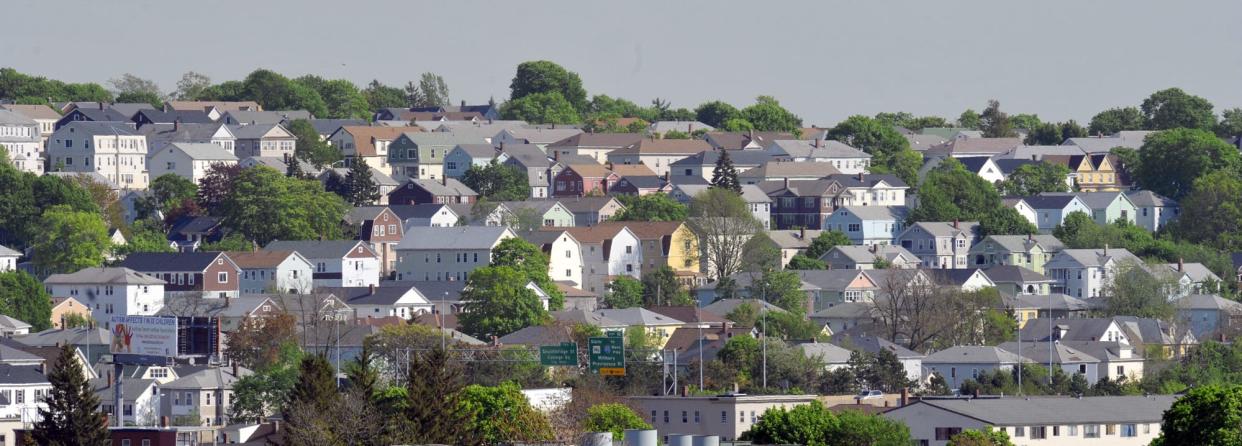Worcester sets 2022 tax rates: Homeowners will see average jump of $105, businesses $143

WORCESTER — The City Council Tuesday settled on a set of tax rates for fiscal 2022.
Ultimately the council went with at-large Councilor Khrystian King's recommendation of "Line 285" from the tax tables, which sets the rates at $15.22 per $1,000 assessed valuation for residential properties and $33.34 per $1,000 assessed valuation for commercial/industrial.
With the average home in Worcester assessed at $294,325, that means homeowners will see an average jump in their annual tax bills of $105. The average commercial/industrial property in the city assessed at $1,070,268, which equates to an average annual jump of $143.
King said his proposal was what he felt was the most equitable, fair set of rates that would not disproportionately burden homeowners.
King was joined by District 4 Councilor Sarai Rivera, District 1 Councilor Sean Rose, at-large Councilor Kathleen Toomey, District 5 Councilor Matthew Wally and Mayor Joseph M. Petty in pushing through the fiscal 2022 rates, which will levy $346,617,661 in taxes. That remains around $20 million below the levy limit of $367 million. The council in June approved an overall annual budget of around $734 million.
There appeared to be significant support for the lowest residential tax rate during discussion that led up to the annual vote to set the city's dual rates for residential and commercial, industrial and personal property.
The rates approved by the council were one pair among five that were floated during the discussion Tuesday night. The lowest residential rate — $15.06 per $1,000 assessed valuation for residential taxpayers, and $33.83 for businesses — had five votes. At-large Councilors Gary Rosen, Donna Colorio and Morris Bergman, along with District 3 Councilor George Russell and District 1 Councilor Candy Mero-Carlson, expressed support for the lowest residential rate.
Petty, at-large Councilor Matthew Wally, Rose, Toomey and Rivera, all supported rates that would have either had residents shouldering a higher average annual increase or seen businesses see their annual bills go down. The set of rates Petty and Wally initially supported, for example, would have resulted in an average annual increase on residential tax bills of $199, but would have seen the average commercial/industrial bill go down by $1,023.
Russell said averages were not really the best framework to be discussing the rates. He said the median numbers gave a more accurate picture of how the tax rates impact most homeowners and most businesses in the middle of the city's residential and commercial/industrial sectors.
He pointed out, for example, that when looking at median numbers, the median commercial/industrial tax bill would actually go down by just over $1,000, or around 8.3%, if the council voted in the lowest residential tax rate. The median residential bill would go up annually by $76.
Alex Guardiola, vice president of government affairs and public policy for the Worcester Regional Chamber of Commerce, said the city can't compete with surrounding towns that are luring businesses with their unified tax rates. He said less than a third of the state's cities and towns have a dual tax rate, and it's time that the city got back on track in bringing the two rates closer together.
He said small businesses in particular are struggling, and business tenants often enter into "triple net" leases in which they pay rent, utilities and taxes. And he said politicians often talk about how the city gives out tax-increment financing deals "like candy," but he said there are only 16 active TIFs in the city, out of 9,000 businesses.
Guardiola said the chamber supported Line 211, which called for a residential rate of $16.28 per $1,000 assessed valuation, and a business rate of $29.68 per $1,000 assessed valuation. Those rates would have resulted in an increase in the average residential tax bill of $420, and the average commercial/industrial bill would have gone down by $3,774.
Mero-Carlson and other councilors said that what brings a business to the city, or what keeps a business here, is more than the tax rate. Companies like WuXi and Galaxy Life Sciences have decided to set up shop here, and Table Talk Pies, which had the opportunity to move out of the city, chose to relocate to the South Worcester Industrial Park area to stay close to its employees, Mero-Carlson said. And she said smaller businesses, including many that make up the city's vibrant restaurant scene, have said "Worcester is the place to be," and are grateful to have a business operating in the city.
This article originally appeared on Telegram & Gazette: Worcester 2022 tax rates; Homeowners will see jump of $105, businesses $143

